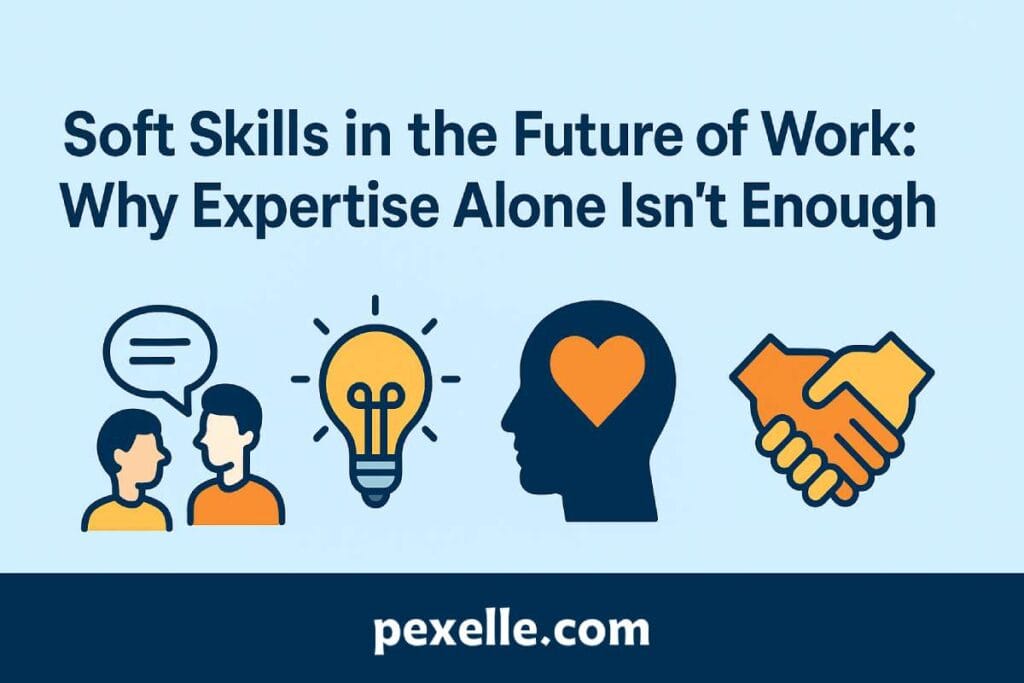Soft Skills in the Future of Work: Why Expertise Alone Isn’t Enough

In the rapidly evolving job market, technical expertise is no longer the only ticket to success. As automation, artificial intelligence, and remote work reshape industries, the value of soft skills—like communication, adaptability, empathy, and critical thinking—is becoming undeniable. While hard skills may land you an interview, soft skills are increasingly what help professionals thrive, collaborate, and lead in dynamic work environments.
The Changing Landscape of Work
The future of work is defined by constant change. Hybrid workplaces, digital collaboration, and global teams require more than technical know-how. For instance, software developers today aren’t just expected to write clean code—they’re expected to communicate clearly with non-technical stakeholders, understand user needs, and work within cross-functional teams. In a world driven by innovation, the ability to listen, learn, and lead with emotional intelligence is what separates good professionals from great ones.
Why Soft Skills Matter More Than Ever
One of the biggest misconceptions is that soft skills are “nice to have” rather than essential. In reality, they are often the key differentiators in hiring decisions and promotions. A highly skilled data analyst who cannot present insights effectively will struggle to make an impact. A project manager with weak interpersonal skills might derail a team despite meeting deadlines. As AI and tools like ChatGPT automate routine tasks, human-centered abilities—like creativity, empathy, and persuasion—are rising in value.
Soft Skills That Will Define Future Leaders
The World Economic Forum’s “Future of Jobs” report highlights several soft skills as critical for future success. These include:
- Adaptability: Embracing change and learning new tools quickly.
- Critical Thinking: Evaluating information and making smart decisions in complex situations.
- Emotional Intelligence (EQ): Understanding and managing emotions, both your own and others’.
- Collaboration: Working effectively across cultures, time zones, and technologies.
- Communication: Articulating ideas clearly, both in writing and in speech.
These skills not only foster better teamwork and leadership but also ensure resilience in times of uncertainty.
Building a Soft Skill Strategy
Soft skills can be developed, just like hard skills. Companies and individuals must invest in training, feedback, and intentional practice. Mentorship programs, role-playing, peer learning, and cross-disciplinary projects can all nurture these human-centric capabilities. Employers should also incorporate soft skill assessments into recruitment and performance reviews to emphasize their value.
Conclusion
The future belongs to professionals who combine deep expertise with high emotional and interpersonal intelligence. In an age where machines can replicate many hard skills, it is soft skills that will remain uniquely human and indispensable. As the world of work continues to evolve, the most successful individuals will not be the most specialized, but the most adaptable, collaborative, and emotionally intelligent.
Source : Medium.com




